I have always been interested in the issue of hubris. My most favorite classical dramatic plays and novels deal with the issue of hubris. In college I took many courses in literature, philosophy, and Greek mythology where hubris is always a major theme, which I have continued to read as an adult. Hubris continues to emerge as a major theme in contemporary fiction and drama, as well as in life.
Why is pride considered a sin? Clearly this must mean excessive pride because the human race would not exist without pride, innovation, taking risks, art, science, and changing the world around us. Throughout history hubris is punished and the theme of propaganda to impose conformity to authority, dogma, tyranny, dictators, empires, colonialism, racism, class society, communism, fascism, and slavery.
The issue of hubris is a fascinating topic that delves into the questions of what it is to be human and are humans truly endowed with free will? It explores the boundaries and social mores of what is considered good and evil by society. It begs the questions of conforming to authority, being creative, and striving for greatness.
Traditionally in Western culture, hubris is fundamental to the moral basis of good and evil. Hubris is considered a sin yet the greatest heroes in history and literature are hubristic by challenging the social restrictions on human creativity and greatness. Hubris, whether for good or bad, is a powerful theme in much literature, poetry, art, drama, opera, film, TV, mythology, and religion. Many of the greatest books and plays ever written deal with the issue of hubris.
Hubris As Sin
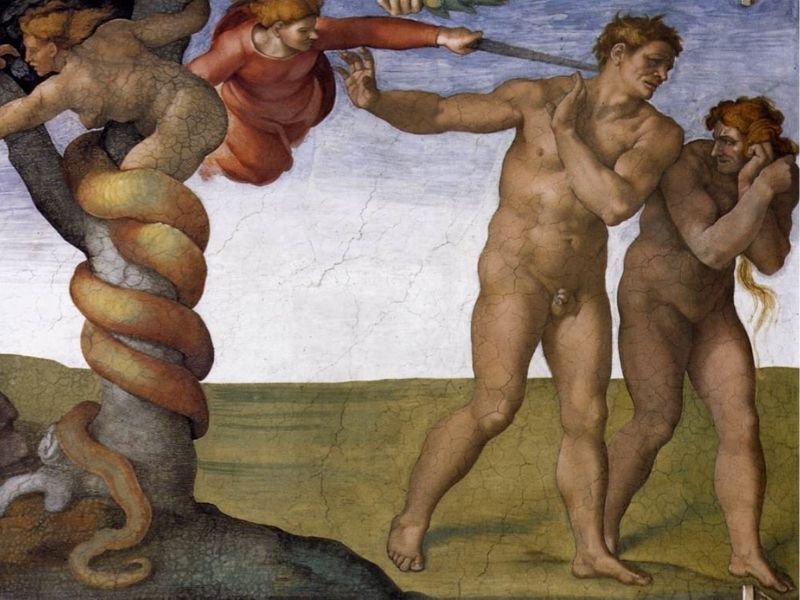
Hubris in its negative connotation is against Natural Law and social moral authority, either as an individual character flaw or on a social scale such as tyranny, bigotry, injustice, or superstition.
Hubris is most often defined as excessive pride, arrogance, inflated self-importance, superiority complex, narcissism, and overconfidence. In literature it results in a character’s unrealistic belief in their own capabilities beyond normal human traits. Often this excessive pride is in defiance of God(s), Divine order, fate, Natural Law, or authority; resulting in punishment, downfall, or ruin to themselves and those around them. In some cases, hubristic characters lose contact with reality and form a delusion that they are invincible or equal to God(s).
To the Ancient Greeks hubris is the worst of sins by insulting, offending, or outraging the gods through evil acts or failing to show them proper respect. Hubris is also seen as disregard for victims and not honoring the dead. Hubris is defined as a narcissistic personality disorder of excessive pride and conceit, humiliating others, inflicting shame and embarrassment. Greek mythology characters punished for hubris include Icarus, Niobe, Arachne, Achilles, Odysseus, Herakles, Orpheus, Agamemnon, Antigone, Orestes, Phaeon, and Cassiopia.
The story of Adam and Eve in “Genesis” establishes hubris as a sin in western Judaic, Christian, and Islamic culture. The Biblical “Fall of Man” comes from the human desire “to be god like.” Hubris in the Biblical Old Testament, as well in Greek drama, is about the arrogance and conceit in defying Natural or Divine Law.
“And the Lord God said, Behold, the man is become as one of us, to know good and evil: and now, lest he put forth his hand, and take also of the Tree of Life, and eat, and live forever.” “Genesis 3:22”
Hubris As Free Will
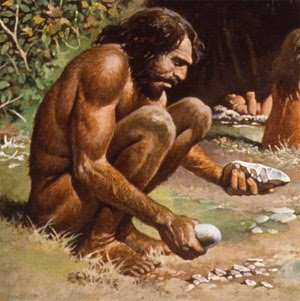
The positive aspect of Hubris is human creative reason to advance art, science, technology, and human progress. In Western culture humans are endowed with what is called Imago Dei in the Judaic, Christian, and Islamic tradition that humans are “made in God’s image” – endowed with the spark of creative reason. This is fundamental to Greek philosophy which shaped Western civilization. To question, to challenge, to perfect the world, and to master the laws of the universe.
As stated in the Old Testament, “God said: ‘Let us make man in our image/b’tsalmeinu, after our likeness/kid’muteinu; and let them have dominion over the fish of the sea, and over the fowl of the air, and over the cattle, and over all the earth, and over every creeping thing that creepeth upon the earth.’ And God created man in His image, in the image of God He created him, male and female created He them. And God blessed them; and God said to them: ‘Be fruitful, and multiply, and fill the earth, and subdue it; and have dominion over the fish of the sea, and over the fowl of the air, and over every living thing that creepeth upon the earth.” “Genesis 1:26–28”
Hubris is critical to human survival. The human species develops new technological breakthroughs to solve the fundamental problems facing our existence. From food gathering, to complex hunting, to agriculture, to civilizations, to industrial development, to the nuclear and digital age, the human race always solves problems and always will.
We evolve through our cognitive abilities to change our environment, adapt to new conditions, explore and discover the world, and develop new tools and technology for survival and improved quality of life. This human condition will never fundamentally change; we will always be confronted with new problems that challenge human existence.
Promethean Hubris
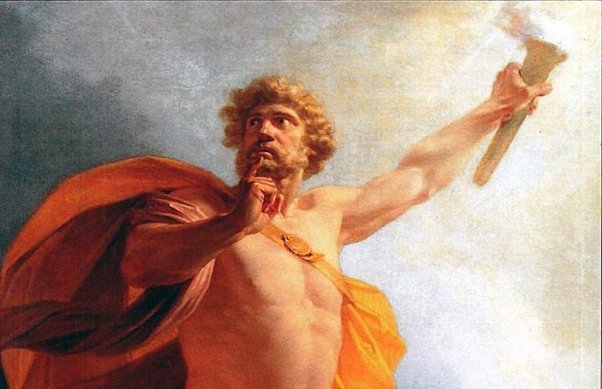
The Greek mythological account of Prometheus is awe inspiring – trickster god, fire god, god of invention, creator and savior of the human race, rebel and revolutionary against tyranny.
The Greek god Prometheus is seen as the symbol of the revolutionary spirit giving knowledge and liberty to the masses. Prometheus is heralded as the giver of Fire (creativity), the revolutionary overthrowing tyranny, and the striving for knowledge and science. He inspired many poets, writers, and artists, such as, Heraclitus, Plato, Aeschylus, Dante, Boccaccio, Shakespeare, Milton, Goethe, Schiller, Pushkin, Blake, Longfellow, Keats, Byron, Shelley, Mary Shelley, Heine, Nietzsche, Kafka, Jung, Ayn Rand, Rilke, Ted Hughes, and others. In music by Beethoven, Mozart, Schubert, Mendelssohn, Liszt, Wagner, Wolf, Faure, and others.
Prometheus, the immortal Titan champion of mankind and civilization whose name means ‘forethought’. He sided with the Olympian gods, led by Zeus, to overthrow the Titan tyrant Cronus. Prometheus created human being, with the assistance of Athene and Hephaestus, and gave humanity Fire (reason and creativity), which he stole from Olympus. As well, he brought the fire arts (crafts, arts, science, technology, invention) of Athene and Hephaestus to humanity. Zeus kept fire from humans and punished Prometheus for his hubris. Prometheus was chained to a mountain and daily an eagle came to eat his liver, which grew back by the next day. Zeus could not kill an immortal and needed to break Prometheus who knew the secret of who would overthrow Zeus. Herakles, the son of Zeus, freed Prometheus by killing the eagle and breaking the chains that bound him.
Paradise Lost
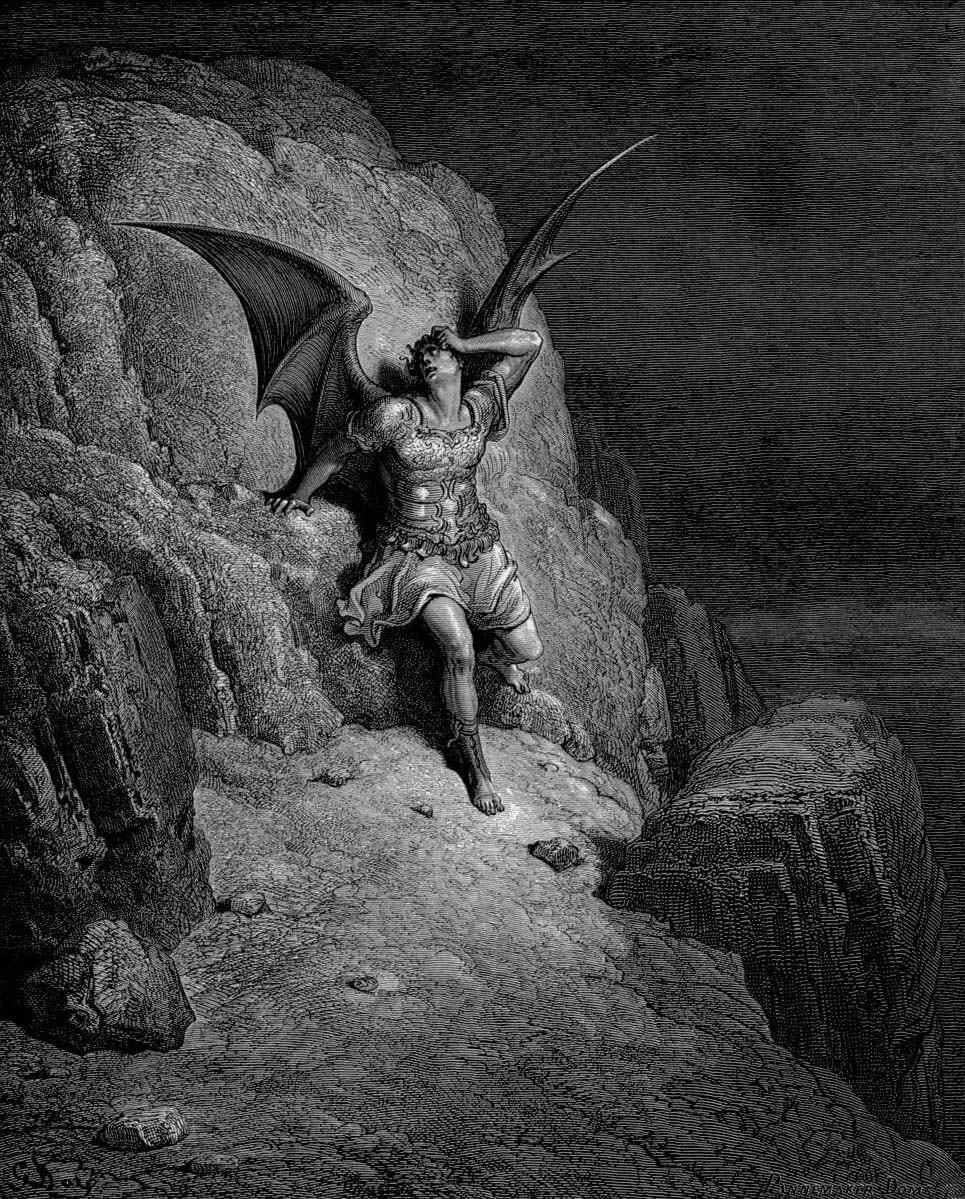
“Paradise Lost”, 1667 by John Milton (1608-74)
Milton’s Satan starts out as an exciting Promethean hero but then turns evil. Satan was once God’s most beloved angel above all others, but his excessive pride leads to his downfall. Satan believes that angels were “self-begot”gods, therefore he will not submit to God’s authority. In an epic battle of Heaven, Satan’s angel legions are defeated and driven into Hell. Satan tries to win over the new formed humans to his side against God. But when he sees the beauty of Earth, the Garden of Eden, and the first humans, Adam and Eve, he realizes that God is the creator. His pride will not allow him to admit error, so he resolves himself to evil, to destroy God’s creation.
“Paradise Lost” was second only to the Bible in being read in the American English colonies. It is ranked as one of the greatest written works in history, on a level with Homer, Greek drama, Dante, Shakespeare, among others. The work had a profound influence on Blake, Wordsworth, Shelley, Mary Shelley, Keats, Byron, Schiller, Burns, Goethe, Mozart, Melville, Pushkin, C.S. Lewis, and numerous others.
Frankenstein: or, The Modern Prometheus
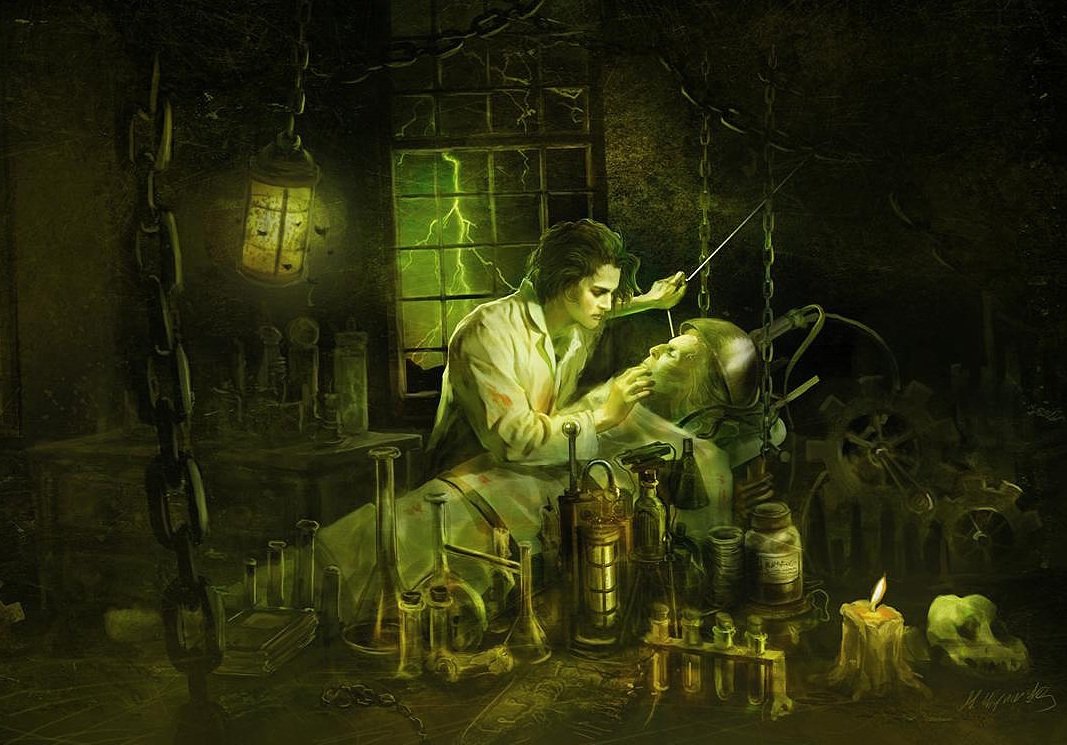
“Frankenstein; or, The Modern Prometheus” was published in 1818 by Mary Shelley (1797-1851).
The novel tells the story of Doctor Victor Frankenstein, a young scientist who creates a human being in an unorthodox scientific experiment. At first Dr. Frankenstein is a Promethean hero but he turns evil and believes he is a God like. Much of the novel is a profound discourse on the human mind and soul, human purpose, the existential question about what does God expect of us after making our existence miserable and alone, and should humans have the hubris to become like gods and change the order of Nature.
Benjamin Franklin, called the ‘Modern Prometheus’ in Europe, captured lightning (fire) from the heavens and created a race of new humans capable of governing themselves without a king through the American Revolution. This view was agreed to by pro-American poet Percy Bysshe Shelley, but Mary Shelley did not agree with the republican sentiments of her husband. In Mary’s novel, Victor Frankenstein (a word play on Franklin) uses electricity to create life, but his hubris against the laws of Nature results in creating a monster that destroys all who Victor loved. Mary Shelley makes the political analogy that the American people, by overthrowing monarchy, will become monsters like the mob rule of the French Revolution.
In the novel, the being that Dr. Frankenstein creates, is born innocent and childlike with a beautiful mind and spirit. As he is rejected, outcast, and physically assaulted he becomes ‘ugly’ and terrorizing. Mary Shelley portrays the creature much like Satan in Milton’s “Paradise Lost”, where Satan is at first Good and beautiful but becomes ugly and Evil the further he is denied Divine grace. The ‘monster’ likewise is abandoned by his creator and denied social learning and interaction to make him fully human.
Faust
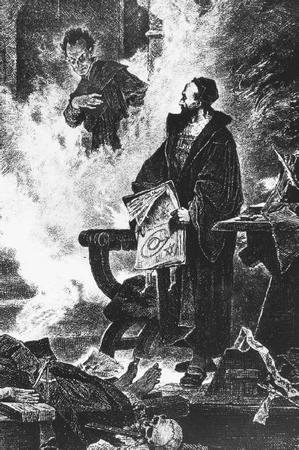
“Doctor Faustus”, 1604, by Christopher Marlowe (1564- 93). Faustus seeks omniscience, to know everything like God. He wants to be superior to all other humans of his age. He gives his soul to the Devil, learns black magic, and defies Christianity. Faustus causes harm to many but is offered redemption; he will not repent and therefore is condemned to eternal damnation.
Goethe’s’ Faust is a Promethean hero. “Faust”, part one 1808, part two 1832, by Johann Wolfgang von Goethe (1749- 1832). The Goethe story of Faust is different than Marlowe’s account. The Faust character is more complex and wants knowledge to do good. The Devil and God have a wager if Faust will be damned or not, but the Devil loses the bet. Faust is saved by his love for Gretchen and his virtuous pursuit toward perfection to help human society. Faust tricks the Devil by using the Devil’s powers given him to attain good for a better world.
Moby Dick
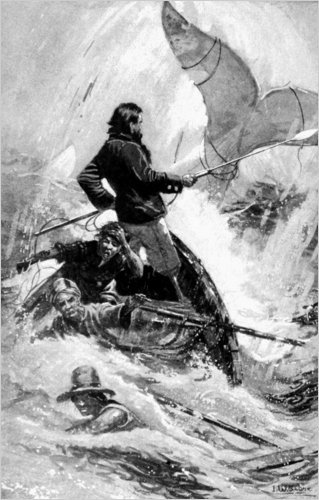
“Moby Dick” 1851, Herman Melville (1819- 91)
The tale of Captain Ahab, obsessed with revenge, hunts the great white whale Moby Dick and in so doing destroys his ship and crew. Captain Ahab believes he is equal to God, immortal and omnipotent. He rejects God for an alliance with the Devil to kill the white whale.
Ahab hubris quotes:
“I’d strike the sun if it insulted me.”
“I am madness maddened, that madness that’s only calm to comprehend itself.”
“There is one God that is Lord over the earth, and one Captain that’s lord over the Pequod.”
“I do not baptize you there in the name of the Father, but in the name of the Devil.”
“I am immortal on land and sea.”
“Is Ahab, Ahab? Is it I, God, or who, that lifts this arm?”
Antigone
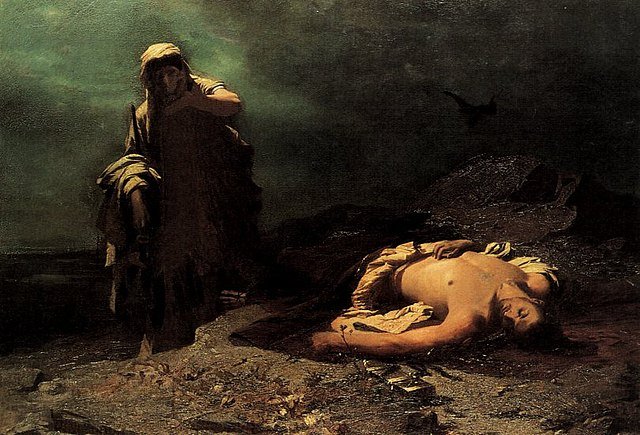
“Antigone”, 441 BC, Sophocles (497- 405 BC)
The king of Thebes decrees that no one bury the traitor Polynices. The man’s sister Antigone buries him, claiming that burial is a Divine right and she is thrown into prison where she commits suicide. The king’s son, betrothed to Antigone, in grief kills himself; then his mother the queen also kills herself for her son’s death. The king’s defiance of Divine law causes the death of all those he loves, leaving him alone to suffer.
The Great Gatsby
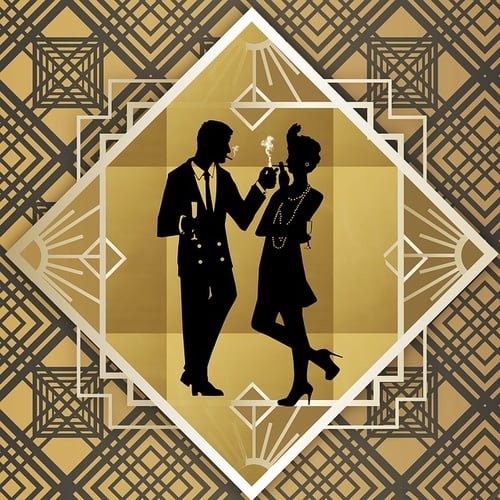
“The Great Gatsby”, 1925, by F. Scott Fitzgerald
A great tragic novel considered by many as the best U.S. novel. The story is about self-made millionaire Jay Gatsby in the 1920s who seems to have everything, good looks, charming, and wealthy. He holds deep secrets and tells lies about himself, he is a ruthless criminal bootlegger with beginnings in poverty and therefore cannot join upper class society. He is obsessed with socialite Daisy Buchanon, a married woman. He creates his own persona to gain wealth, all to win back Daisy.
Gatsby is arrogant believing he is superior to others and is not bound by moral or legal authority. He believes he is godlike destined for glory. His excessive pride leads to his ruin and for those around him.
The Picture of Dorian Grey
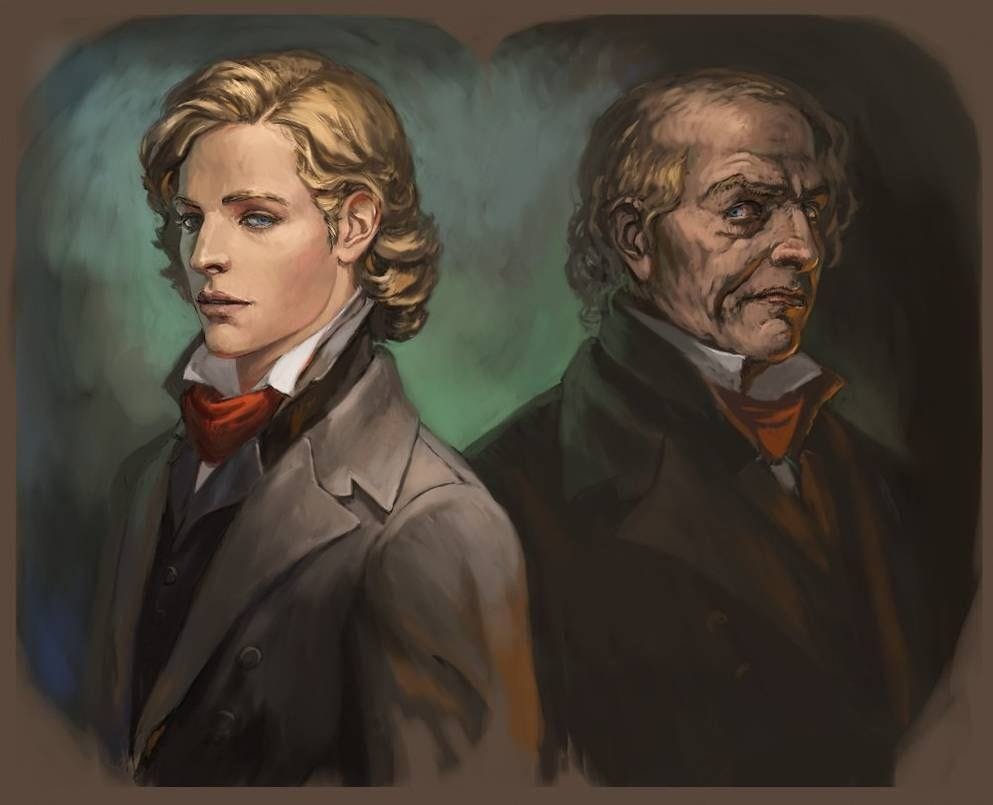
“The Picture of Dorian Gray”, 1890, by Oscar Wilde.
A Faustian style gothic novel set in Victorian London. Dorian Gray is a handsome, narcissistic young man seduced into a life of depravity by the amoral Lord Henry. A portrait is painted of Dorian where the figure in the painting ages but he stays young. He sells his soul for eternal youth. He denies morality and lives a life of hedonist pleasure, seduction, sex, perversion, crime, and drugs. He becomes a cruel blackmailer and murderer who destroys people around him. His arrogance leads to his demise.
The Odyssey
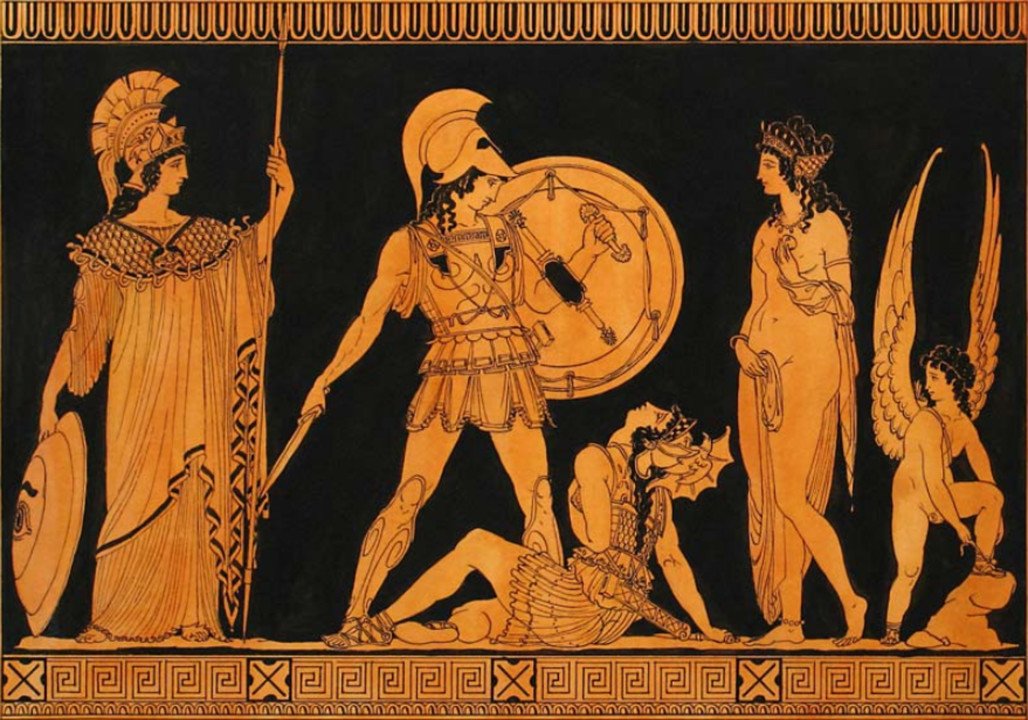
“The Odyssey”, 762 BC by Homer
King Odysseus is a popular Greek hero full of life, cunning, and adventure. Boasting of his own wit and cunning he is resentful of the gods claiming glory for his works and fails to honor the gods. After the fall of Troy, Odysseus is punished to wander and must endure great hardship and danger for 10 years keeping him from his home and family. During this time he arrogantly ignores Greek morals, laws, and customs. His pride destroys his family and leads to the death of his crew.
Oedipus Rex
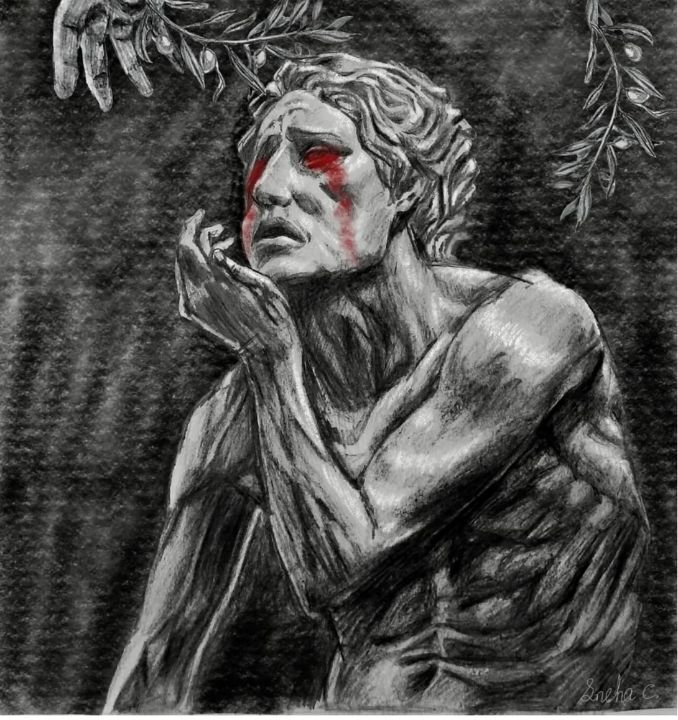
“Oedipus Rex”, 429 BC, Sophocles (497- 405 BC)
Oedipus believes his power is so great that no one can accuse him of anything and he refuses to accept the prophecies of his fate. The Oracle tells him that he will kill his father and marry his mother. He travels to avoid his fate, he kills a man on the road, then in Thebes he marries the Queen. He ends up doing exactly what he fears: he kills his father and marries his mother. He blinds himself in his despair.
Macbeth
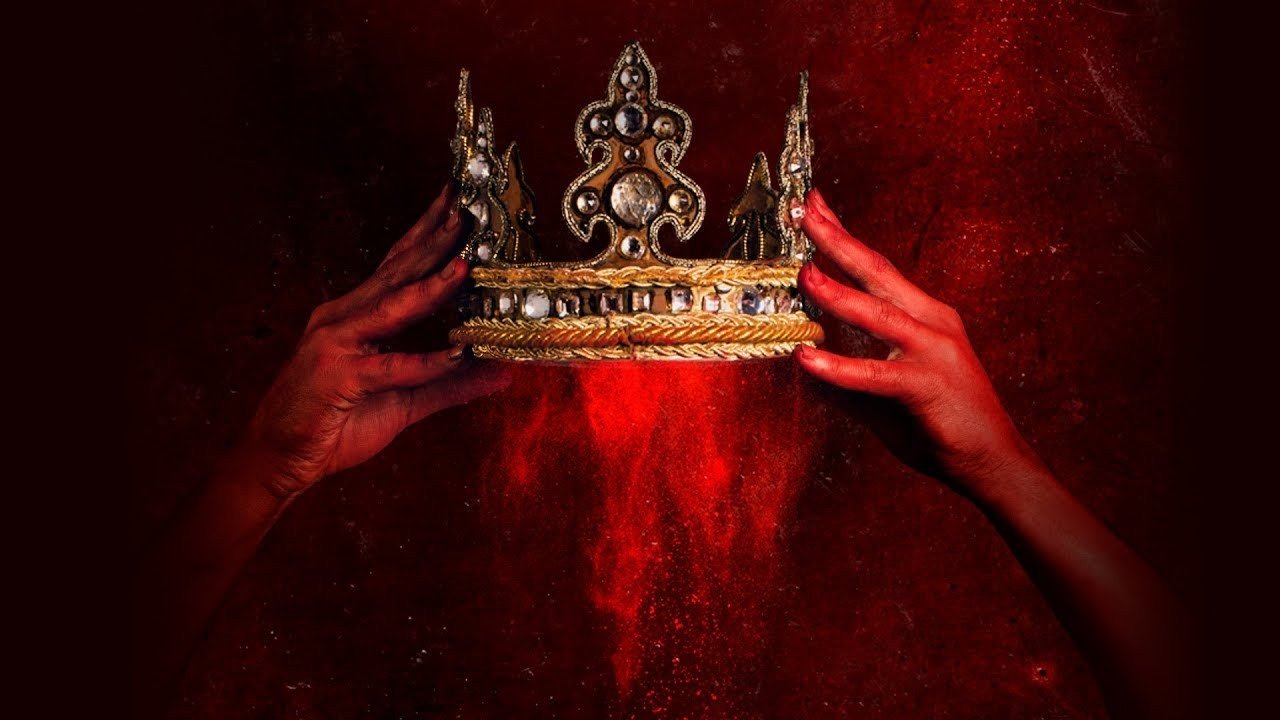
“Macbeth”, a tragedy written in 1606 by William Shakespeare (1564- 1616).
Macbeth’s hubris is so strong that he believes he can kill the king of Scotland, take the crown, and get away with it. His blood lust for power stops at nothing to serve his ambition, which results in his destruction and for all around him.
Don Juan
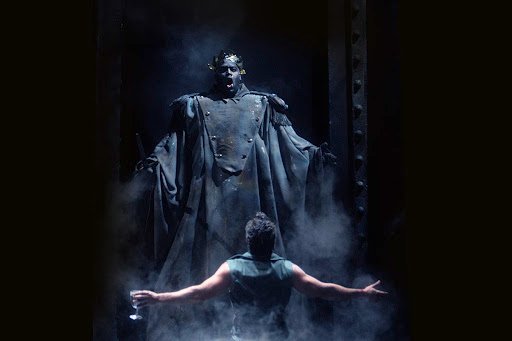
The proud and arrogant adventurer Don Juan defies God and believes he is omnipotent. He is a notorious seducer who shames and ruins hundreds of women. In both Moliere’s “Don Juan” 1665 and Mozart’s “Don Giovanni” 1789 he is thrown into Hell.
The story is different in Lord Byron’s “Don Juan”, 1821. Don Juan is a young adventurer that is handsome, witty, charming, and sexually attractive to woman. Byron’s Don Juan, though, is not an evil seducer, rather, he is seduced by women because he champions women and treats them as equal.
Wallenstein
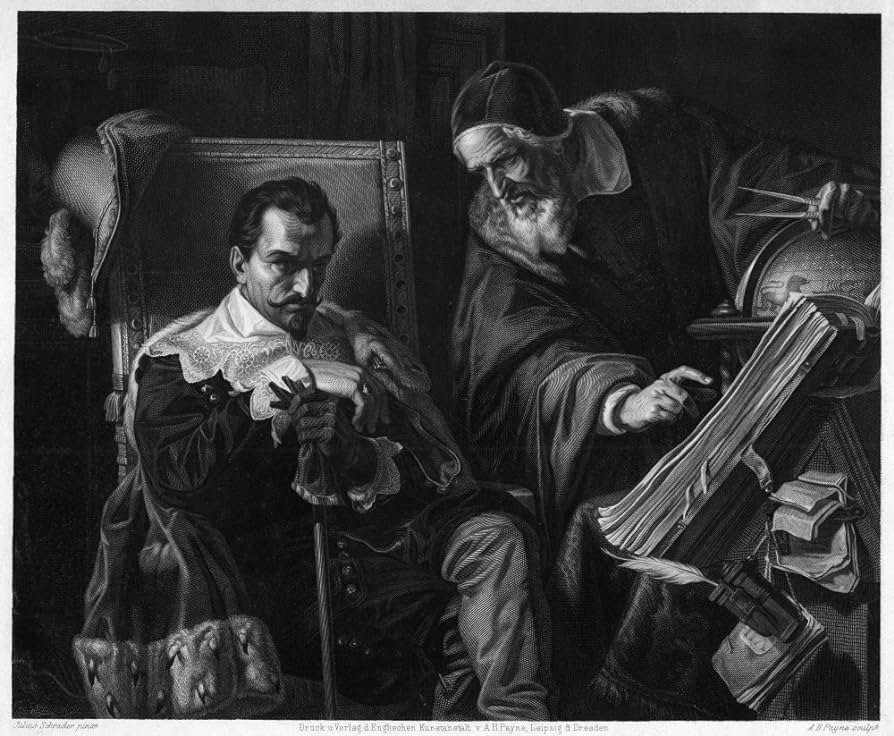
“Wallenstein”, 1799, Friedrich Schiller (1759- 1805)
Part of drama trilogy. Set in the Thirty Years War (1618- 48), proud and ambitious General Wallenstein leads the Catholic Hapsburg Emperor’s war against the Protestants. The war is genocidal slaughter that is destroying Europe. He tries to end the war and usurp the Emperor to become king. Wallenstein is killed and the war continues for another 14 years.
Schiller’s play is highly popular in Germany, inspiring patriotic nationalism in the German and Prussian populations to mobilize against Napoleon’s armies. Goethe and Humboldt helped Schiller on the play.
Agamemnon
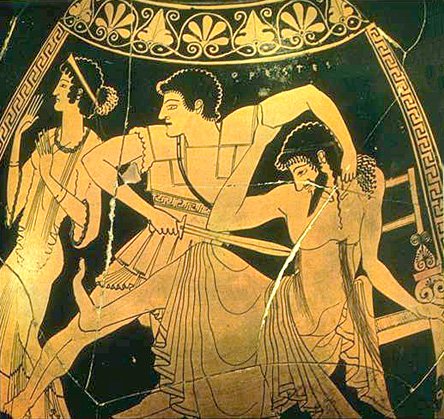
“Agamemnon”, Aeschylus (524- 455 BC)
Agamemnon, the King of Argos, brings a blood curse on his family by his hubris in defying the gods’ warnings, he believes he is invincible and above Divine Law. He sacrifices his own daughter for the sake of glory in war, destroys Troy and slaughters the city’s population, brings a priestess of Troy home as a concubine paraded before his wife, kills off most males of the city Argos in the war, and lets the city collapse into economic and social chaos. His wife murders him to avenge the death of her daughter and his family kills each other over revenge, greed, and power.
Madame Bovary
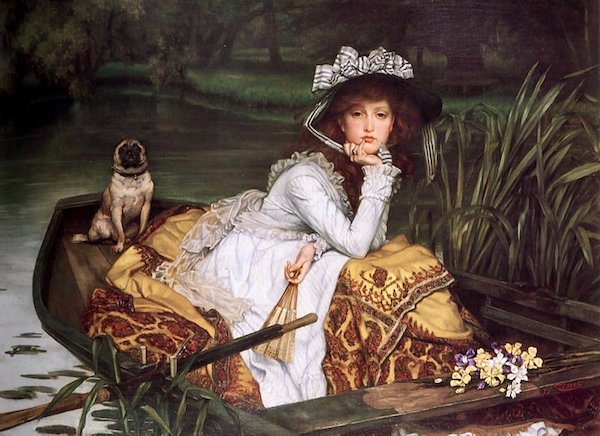
“Madame Bovary”, 1856, Gustav Flaubert (1821- 80)
Emma Bovary is selfish, proud, and vain, who has unrealistic desires for beauty, fashion, wealth, passion, and high society. She believes that she is superior to other people. She has several sexual affairs, lives far beyond her means to maintain her lifestyle, places her family into excessive debt, and she ultimately commits suicide. Emma’s selfish pride destroys her husband, which kills him, and impoverishes her daughter, left alone in poverty.
Considered one of the greatest and most influential novels ever written, which redefined the novel as an art form. Banned and scandalized, Flaubert faced prosecution for the novel and won acquittal.
References
Ancient Greek, Roman, and Hebrew
- Genesis, Holy Bible, King James Version.
- Theogony, Hesiod, 730 BC.
- Plays of Aeschylus (525-455 BC).
- Plays of Euripides (480-406 BC).
- Plays of Sophocles (497-405 BC).
- Republic, Plato, 375 BC.
- Nicomachean Ethics, Aristotle, 4th Century BC.
- Metamorphoses, Ovid, 8 AD.
- Mythology: Timeless Tales of Gods and Heroes, Edith Hamilton, Little Brown, 1942.
- Bullfinch’s Mythology, Thomas Bullfinch, Lea & Shepard, Boston, 1867.
- The Greek Myths, Robert Graves, Penguin, London, 1955.
- Prometheus: Archetypal Image of Human Existence, C. Kerenyi, Thames & Hudson, 1963.
- A History of Greek Philosophy, Eduard Zeller, Longmans Green, London, 1881.
- Plato and the Older Academy, Eduard Zeller, Russell & Russell, NY, 1888.
- The Life of Greece, Will & Ariel Durant, Simon & Schuster, NY, 1939
Medieval and Modern
- Catholic Encyclopedia, online.
- Stanford Encyclopedia of Philosophy, online.
- On Free Choice of the Will, Augustine of Hippo, 388 AD.
- The Consolation of Philosophy, Boethius, 523 AD.
- Summa Theologica, Thomas Aquinas, 1274.
- Divina Commedia, Dante Aligheiri, 1321.
- Ethics, Baruch Spinoza, 1675.
- Critique of Practical Reason, Immanuel Kant, 1788.
- The Phenomenology of Spirit, Georg W.F. Hegel, 1807.
- A Defense of Poetry, Percy Bysshe Shelley, 1821.
- The Birth of Tragedy, Friedrich Nietzsche, 1872.
- History of Philosophy, Wilhelm Windleband, Macmillan, NY, 1893.
- The Neurotic Personality of Our Time, Karen Horney, Norton, NY, 1939.
- A History of Philosophy, Frederick Copleston, Doubleday, NY, 1946.



